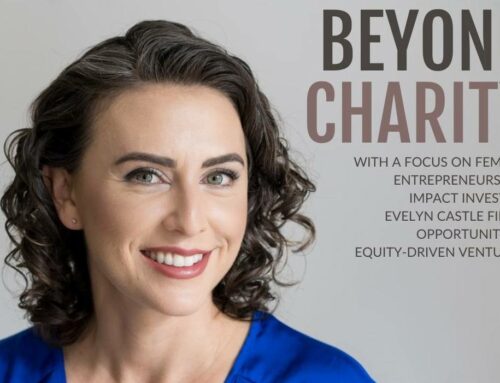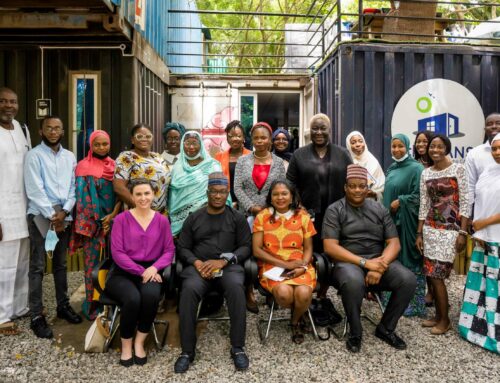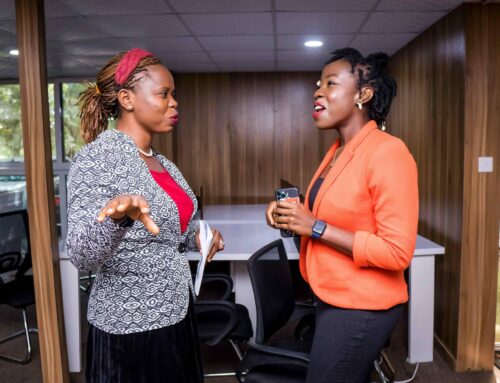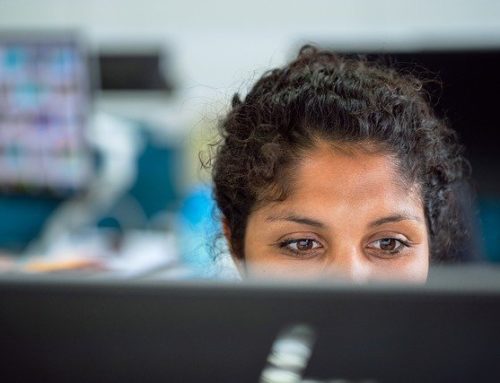There is no question that sending financial aid to African nations is essential during times of crisis. Polio eradication in Nigeria and the containment of Ebola in West Africa would not have been possible without financial and technical support from the rest of the world.
While there can be no argument about the need for financial aid in Africa (where 36 percent of the population lives in poverty), to make sustainable change, the goal needs to extend beyond aid alone. Long-lasting, generational impact can be achieved by creating opportunities for well-educated entrepreneurs to create impactful businesses that support themselves and create jobs.Â
At eha Impact Ventures, the company I founded in January 2021, we are committed to building Africa’s impact investing ecosystem, with the specific goal of supporting female-owned small and medium-sized enterprises. The people with whom we work are asking only for the same opportunities afforded to those who live in the U.S. or UK. They are seeking not a handout but rather a hand.
Despite many challenges, the African business ecosystem has grown dramatically over the last several years. Landry Signe, a senior fellow at the Africa Growth Initiative, and Ameenah Gurib-Fakim, the former president of Mauritius and now an advisor to the Global Network for Africa’s Prosperity, outlined some of the changes in a January 2019 piece that appeared on the Brookings Institute’s website.
They noted that there is greater political stability across the continent than ever before, and that the African Union had dedicated itself to “winning the fight against corruption.†Moreover, childhood education and adult literacy are on the rise, and the gender gap in literacy is shrinking. All of these factors lead to a stronger, more resilient business ecosystem in which we can invest.
Since that piece appeared, the continent, like the rest of the world, has been rocked by the pandemic. Africa’s real GDP contracted by 2.1 percent in 2020, but is expected to grow by 3.4 percent this year. A similar rebound is expected in Nigeria — the wealthiest African nation — where the real GDP slipped by three percent in ‘20 but is projected to rise by 1.5 percent this year and 2.9 percent in 2022.
Assuming those numbers prove to be accurate, the continent’s upward trajectory will continue and the thesis of Signe and Gurib-Fakim’s piece will remain true — that Africa is “shaping its own destiny†and there should be a greater focus on “African opportunity†as opposed to “African threat.â€
Angelle B. Kwemo, founder of Believe in Africa, and Dr. Ibrahim Mayaki, CEO of New Partnership for Africa’s Development (NEPAD), both emphasized that the first order of business must be job creation. They pointed out that Africa has the youngest population in the world — 75 percent of those living on the continent are under the age of 25 — and there is a continuing shortfall of jobs.
While that 36 percent poverty rate is considerable, it is actually down from 54 percent in 1990 and 41 percent in 2015. Still, there is a long way to go, especially in light of the United Nations Sustainable Development goal of eradicating extreme poverty by 2030. The latest prediction is that it will shrink only to 24.7 percent in Africa by then.
Mayaki argues that improving the continent’s infrastructure would go a long way toward improving productivity and education, as only 38 percent of Africans have electricity and 10 percent have internet access. Moreover, only 25 percent of the continent’s roads are paved. Certainly, he wrote, the completion of a highway connecting Algiers, Algeria to Lagos, Nigeria, represents a step in the right direction. But more needs to be done.
Kwemo also pointed out the need for continuing trade cooperation among the continent’s 54 countries, not to mention other nations. To the latter point, the administration of new U.S. president Joe Biden has promised greater engagement with Africa than was the case with the previous administration; his Secretary of State, Anthony Blinken, has in fact promised that Biden and Co. are “looking at the world with fresh eyes.â€
As they look to Africa, they will see many things. But what they should see is that there is a chance to create economic opportunities and as a result permanent change. That’s certainly how it looks on the ground: While there are undoubtedly times people need a hand, what they really want to do is help themselves. That’s the aim of eha Impact Ventures, and should be the aim of other organizations as well.





Leave A Comment